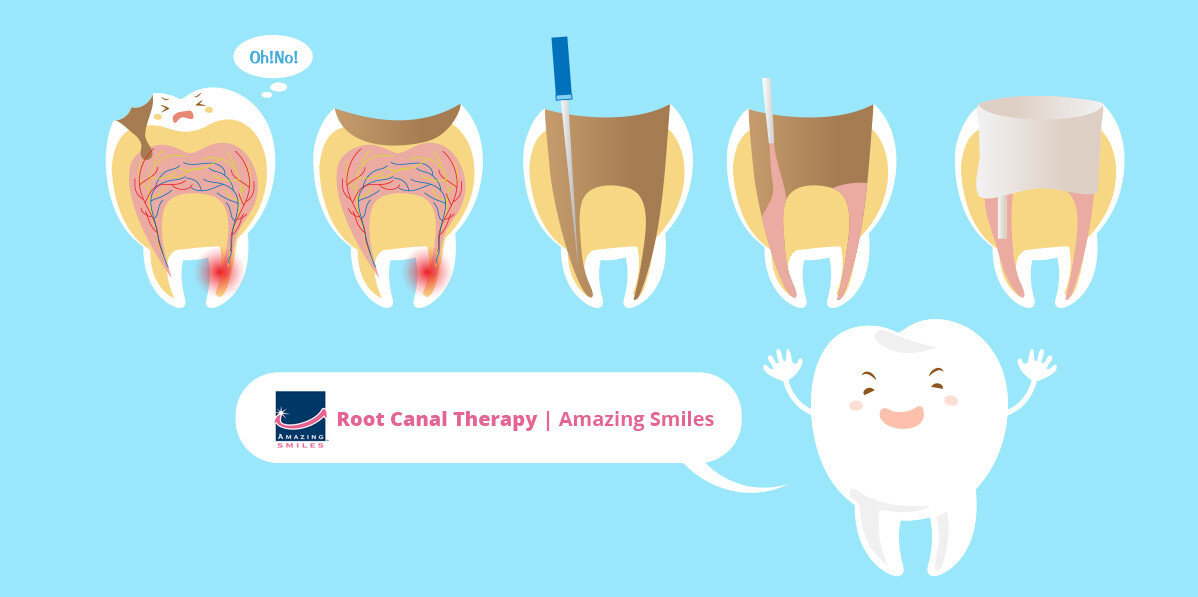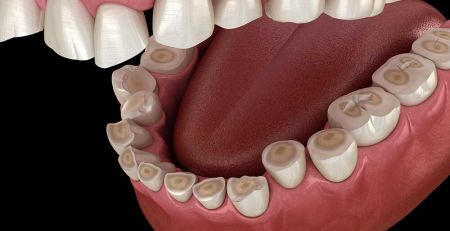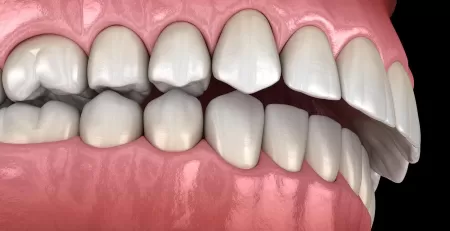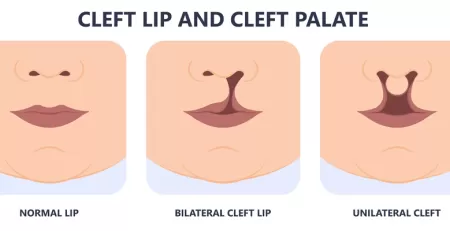Table of Contents
Root canal therapy is possibly the most feared and talked about procedure for dental health.
However, while many may know the name, many Australians have no idea what root canal therapy involves or why they might need it.
Below is information outlining the procedure, possible scenarios that may require a root canal and typical symptoms and signs you may want to look out for.

What is the procedure for Root Canal Therapy?
A root canal typically involves the removal of infected pulp, or dead and decaying nerves, from the tooth to prevent and reduce further incidences of pain.
But don’t worry. The presence of the nerve isn’t vital, as it merely provides a sensory function – feeling heat or cold – and its absence won’t hinder the everyday function of your mouth.
After the pulp and nerve have been removed, the inside of the tooth is cleaned and sealed to prevent further damage.
Why Would I Need Root Canal Therapy?

There are quite a few reasons why you may need a root canal, and they can include:
1) Dental Decay or Trauma
When a tooth experiences decay or trauma, its nerve can become damaged. Damage can lead to the nerve dying, which often causes significant pain.
The tooth’s structure may deteriorate, or trauma can cause direct harm. This leads to inflammation of the pulp tissue – the innermost part of the tooth consisting of nerves and blood vessels.
In such cases, a root canal treatment is often necessary. This procedure involves removing the decayed or diseased pulp and the nerve to prevent the spread of infection and alleviate pain.
It saves the tooth by removing the damaged inner tissue while keeping the rest intact.
2) An Abscess is Commonly Present
An abscess is a localized infection characterized by a collection of pus, usually caused by untreated decay, periodontal disease, or a crack in the tooth.
When a tooth becomes extremely painful to bite down on, it’s often because of an abscess. This pain can be intense and persistent.
A root canal treatment can relieve the infected nerve and dental pulp, which helps eliminate the infection’s source and prevent its spread.
3) Extreme Tooth Sensitivity
If you experience extreme sensitivity to hot, cold, or even sweet foods and drinks, to the point where eating or drinking becomes unbearable, this could indicate that the nerves within your teeth are significantly affected.
Such sensitivity often suggests damage to the pulp of the tooth.
A root canal procedure may be necessary to remove the affected nerve tissue and alleviate this intense sensitivity.
4) An Exposed Nerve
Severe damage to a tooth, such as a significant break or deep decay, can lead to an exposed nerve. This exposure can cause severe pain and discomfort because the nerves in your teeth are extremely sensitive.
When a nerve is exposed, it’s more susceptible to infection and further damage.
A root canal procedure can treat this by removing the exposed nerve and sealing the tooth to protect it from further harm.
5) Multiple Dental Procedures
Sometimes, undergoing several dental procedures on the same tooth can lead to complications, including nerve damage.
Each time a tooth is treated, it can become more fragile and susceptible to injury.
Repeated treatments can irritate the dental pulp, leading to inflammation and pain.
A root canal might be necessary to remove the damaged or inflamed nerve tissue, relieving pain and helping preserve the tooth.
In summary, root canal treatments are often the last resort for saving teeth suffering from severe decay, trauma, infection, or damage caused by repeated dental procedures.
The treatment focuses on removing the damaged or diseased inner pulp and nerve, thereby relieving pain, stopping the spread of infection, and maintaining the tooth’s integrity.

Signs and Symptoms of Root Canal Problems
A root canal is a dental procedure needed when the pulp inside a tooth becomes infected or inflamed. This can happen due to various reasons, such as deep decay, repeated dental procedures on the tooth, or a crack or chip in the tooth.
Here are five common signs that might indicate the need for a root canal:
1) Severe Toothache During Chewing or Applying Pressure
If you experience intense pain when chewing or applying pressure to your tooth, it could be a sign that the nerves and blood vessels in the tooth are damaged or infected.
This kind of pain often indicates that the problem has reached the innermost part of the tooth, where a root canal may be necessary.
2) Prolonged Sensitivity to Hot or Cold Temperatures
While it’s normal for teeth to be sensitive to hot and cold, prolonged sensitivity – especially after the hot or cold stimulus is removed – is a warning sign.
Prolonged sensitivity can suggest that the nerves in the tooth are damaged or infected.
3) Discolouration of the Tooth
If a tooth starts to darken in colour, particularly becoming greyish or blackish, it can be a sign of damage within the tooth.
Discolouration is often due to the pulp being dead or dying, which can be caused by trauma or decay.
4) Swelling and Tenderness in the Gums
Swelling or tenderness in the gums near the affected tooth can indicate an infection that has spread from the tooth to the surrounding tissues.
An abscess (a pus-filled pocket) may sometimes form, leading to more severe infections if not treated.
5) A Persistent or Recurrent Pimple on the Gums
Sometimes called a gum boil, a tiny pustule or abscess on the gums is a sign of chronic dental infection and can indicate that a root canal is needed.
The pimple may ooze pus and cause a bad taste in the mouth.
It’s important to note that there may be no symptoms in some cases. That’s why regular dental check-ups are crucial for detecting problems early.
If you experience these symptoms, it is advisable to see a dentist as soon as possible. The earlier a root canal problem is diagnosed and treated, the better the chances of saving the tooth.
Is root canal therapy painful?
Root canal therapy has a reputation for being painful, but with modern techniques and anesthesia, most patients experience minimal discomfort during the procedure.
The purpose of a root canal is to relieve pain caused by an infected or inflamed pulp inside the tooth. Here’s what you can expect:
- Anesthesia: Before starting the procedure, the dentist or endodontist (a dentist specializing in root canals) will numb the area around the affected tooth with local anesthesia. This step ensures that you shouldn’t feel any pain during the treatment, although you might feel some pressure.
- During the Procedure: With the area numbed, the dentist will remove the infected or inflamed pulp, clean and disinfect the inside of the tooth, and then fill and seal it. Modern techniques and tools have made this process relatively quick and pain-free.
- After the Procedure: It’s common to experience some soreness, sensitivity, or mild discomfort in the area for a few days after a root canal. This is typically manageable with over-the-counter pain relievers. Your dentist may also prescribe medication to alleviate any pain or prevent infection.
- Long-term: Once the root canal and any follow-up treatments (like placing a crown on the tooth) are complete, the tooth can last as long as your other teeth. The discomfort that led to the root canal should be gone, and you shouldn’t feel pain from the treated tooth.
Patients often find that the pain they experience before seeking treatment is much worse than any discomfort associated with the root canal therapy itself.
If you’re anxious or concerned about pain, be sure to discuss this with your dentist or endodontist. They can provide information on pain management options and what to expect during and after the procedure.
How Much Does a Root Canal Treatment Cost?
Like many procedures, the cost of a root canal can vary and often depends on your private health coverage and the level and complexity of restoration work needed.
For more information, contact us at any of our Amazing Smiles Clinics located at Gold Coast, Logan, Jimboomba, Strathpine and Wynnum to book a consultation with our dental professionals.









